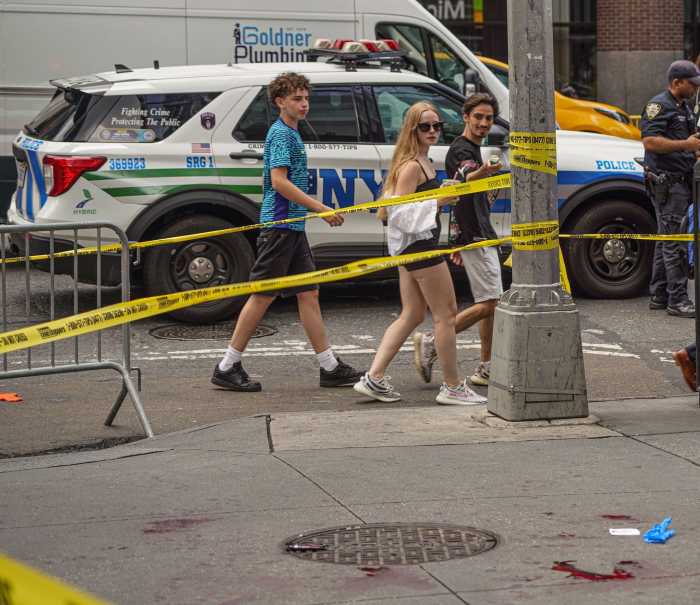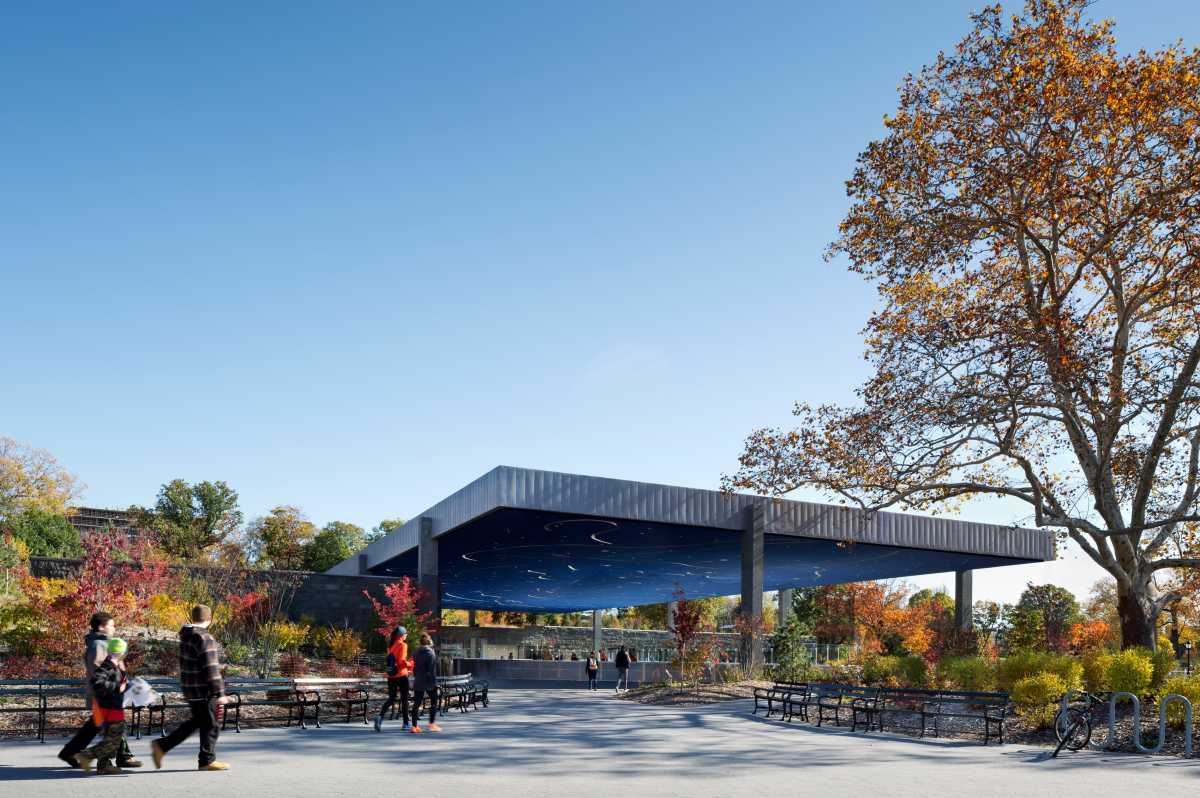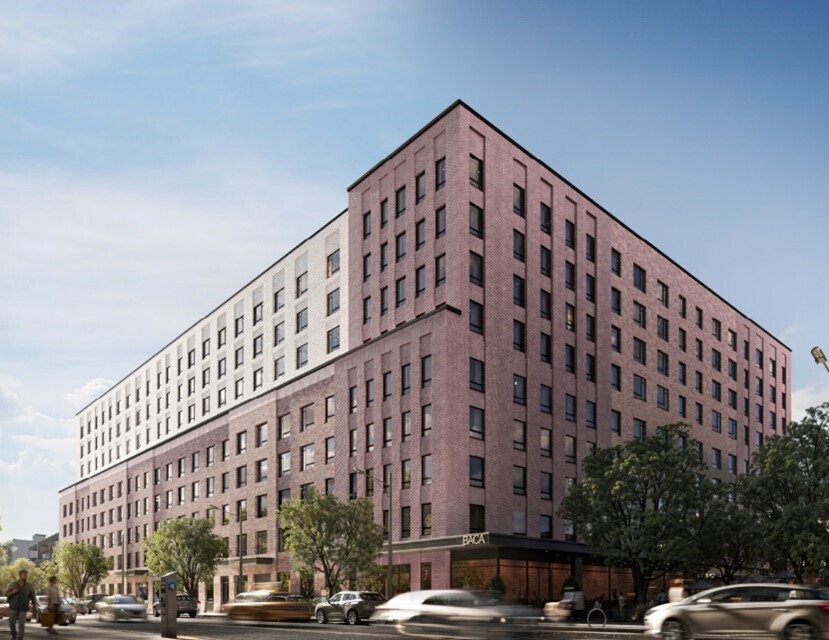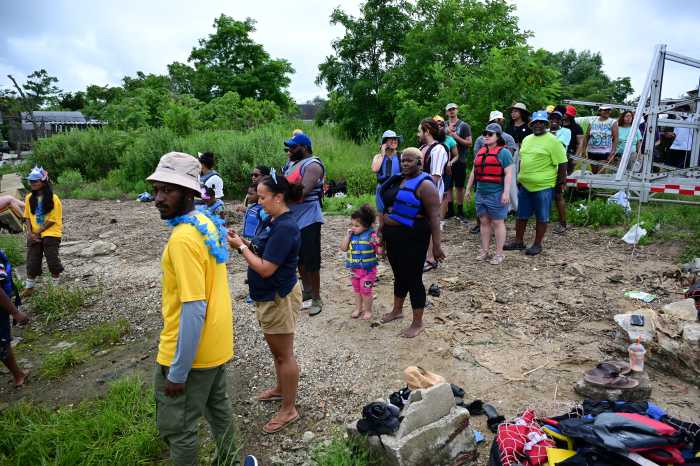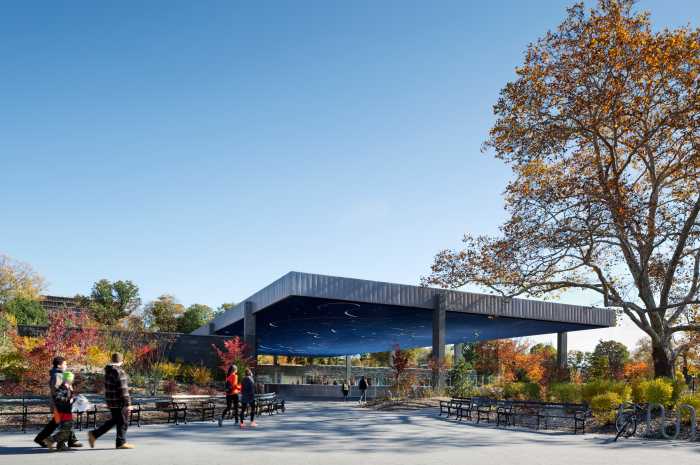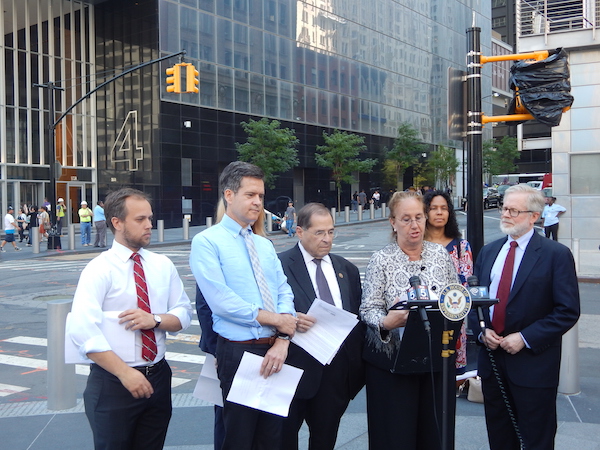
BY SEAN EGAN | On the morning of Thurs., July 21, elected officials gathered outside the offices of the Port Authority of New York and New Jersey in order to formally call for the immediate halt of plans for a new Port Authority Bus Terminal (PABT) — specifically the design competition the Authority recently initiated, which they believe was launched prematurely.
Standing on the southwest corner opposite of 4 World Trade Center (where Authority offices are located), Congressmember Jerrold Nadler, Manhattan Borough President Gale Brewer, State Senator Brad Hoylman, and State Assemblymembers Richard Gottfried and Linda Rosenthal lined up to deliver statements decrying the way in which the Authority has handled the project’s development thus far. Matt Green, Deputy Chief of Staff for Community Affairs representing City Councilmember Corey Johnson’s office, was also present to deliver a statement, as was Community Board 4 (CB4) Chair Delores Rubin.
Those gathered to speak were consistent in voicing demands that the Authority cease its forward momentum on exploratory scenarios — and restart the process in such a way that directly solicits community input, while taking into account the Hell’s Kitchen neighborhood character and the massive project’s environmental impact.
The PABT project has been controversial ever since it was officially announced in late 2015, in order to meet the needs of a projected 50% increase in ridership in the next few decades. It has been subject to even more scrutiny in recent weeks — particularly by CB4 and its subcommittees, as the Authority’s decision to launch the design competition so quickly has not sat well with the public. Should the Bus Terminal remain at, or near, its current location (Eighth Ave. at W. 42nd St.), the surrounding community is very concerned about the potential use of eminent domain — a process where the government takes control of privately owned land for public works projects — which could displace residents and destroy long-term businesses and institutions.
For the Authority’s part, this outcry hasn’t slowed them at all, as they’ve already narrowed down their design options to five candidates, to present final proposals in August.
Nadler led off the conference, announcing from its outset that its purpose was “to terminate the design competition immediately,” citing a lack of community and neighborhood stakeholder engagement as a source of unease, as well as a lack of analysis into the impact the new terminal would have. He further criticized the lack of serious considerations of other options, which include use of land in New Jersey for an additional terminal — a scenario that has been gaining traction with Manhattanites. “This is a non-starter,” Nadler declared. “Eminent domain must be off the table for this project.”
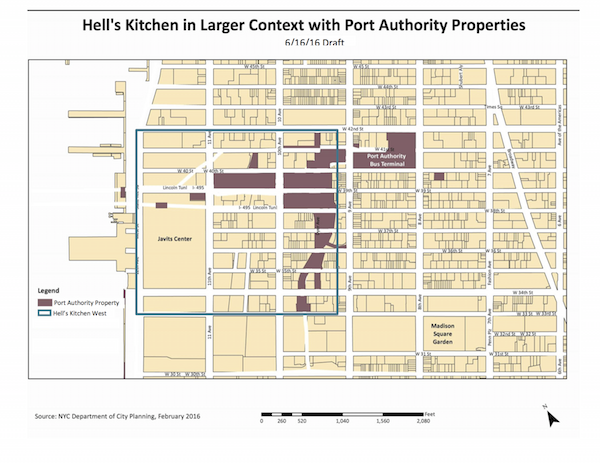
“The Port Authority has put the bus before the horse,” quipped Brewer, who highlighted the need to address quality of life concerns and ensure that hundreds of homes and businesses are not destroyed or negatively impacted by eminent domain. “We’re ready to work with them if they will work with us,” she concluded.
Hoylman noted that the “new Port Authority Bus Terminal is the biggest project of its kind in the world,” and asserted that it shouldn’t be forced upon Hell’s Kitchen residents “without extensive studies” or a “transparent public process,” and alluded to New Jersey Governor Chris Christie being unreceptive/uncooperative in exploring New Jersey options for the project. “Residents of Hell’s Kitchen should not be thrown under the bus terminal,” Hoylman said. “Let’s start over.”
“The Port Authority literally does not know what they’re doing,” Gottfried asserted, chiding the Authority for encouraging plans in the design competition that would require the use of eminent domain, while allowing them to sell the land the current PABT sits on to commercial developers for a massive profit.
“Port Authority started a fight they will lose,” Rosenthal said, echoing the sentiments of her peers, and noting that the plans will reverberate for generations and thus must be taken seriously. Green, reading a statement on Johnson’s behalf, expressed the Councilmember’s desire for the Authority to call off the competition, and his firm rejection of using any form of eminent domain whatsoever.
Nadler then opened the floor for questions, where he was asked if the electeds had a preferred option or plan. “We don’t know at this point,” he replied. “Neither do they.” He reiterated that while “everybody recognizes something needs to be done” about the current terminal, all of the options need to be thoroughly explored.
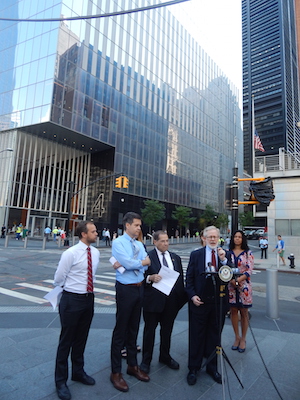
Following the question session, the elected officials made their way over to 4 World Trade Center, in order to attend the Port Authority’s 10am board meeting, and air their grievances to the board and Port Authority Chair John J. Degnan. They were armed with a jointly written July 21 letter addressed to Degnan and Vice Chair Steven M. Cohen, outlining their issues with the project in detail.
“It would be a grave disservice, not only to our constituents, but to all the people of New York and New Jersey, to proceed with the Competition for a new PABT before a thorough and public examination is conducted of all of the outstanding issues and all of the available alternatives regarding a new bus terminal,” reads an excerpt from the letter, which also calls on the Authority to respect current residential zoning regulations, examine how the PABT would function with other transportation hubs, and enact an environmental impact study.
A short time after the meeting concluded, First Deputy Mayor Anthony Shorris released a statement on the PABT project. In it, he states, that due to a lack of the community’s voice in the process thus far, “the City has therefore urged the Port Authority to reconsider the current competition process, and begin a comprehensive public engagement and planning process that considers all possible options for a new terminal.”
Chelsea Now will continue to follow this story as it develops.




